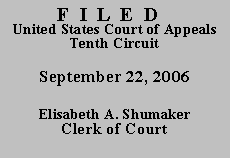

| UNITED STATES OF AMERICA,
Plaintiff-Appellee, |
|
| v. | |
| STEVEN STECKENRIDER,
Defendant-Appellant. |
|
On March 8, 2003, Steckenrider was indicted by a federal grand jury on four criminal counts: conspiracy to possess with intent to distribute crack cocaine in violation of 21 U.S.C. § 846; managing a residence for the purpose of distributing crack cocaine in violation of 21 U.S.C. § 856(a)(2); possession with intent to distribute crack cocaine in violation of 21 U.S.C. § 841(a)(1); and using and carrying a firearm during the commission of a drug trafficking offense in violation of 18 U.S.C. § 924(c). On July 21, 2003, Steckenrider pled guilty, pursuant to a written plea agreement, to the conspiracy charge. The written plea agreement provided, in pertinent part, that Steckenrider "knowingly and voluntarily waive[d] any right to appeal or collaterally attack any matter in connection with [his] prosecution, conviction and sentence," "except to the extent, if any, [that] the [district] court depart[ed] upwards from the applicable sentencing guideline range . . . ." ROA, Doc. 73 at 2. On October 29, 2003, the district court sentenced Steckenrider to 188 months' imprisonment, a term at the bottom of the applicable guideline range (188 to 235 months).
On October 12, 2004, Steckenrider filed a pro se § 2255 motion claiming, in part, that the district court violated his Sixth Amendment rights, as outlined by the Supreme Court in Blakely v. Washington, 542 U.S. 296 (2004), by increasing his sentence on the basis of judicially-found facts, and that his trial counsel erred in failing to object to the alleged Sixth Amendment violations.(1) The government responded by arguing that Steckenrider's motion was barred by the express terms of the plea agreement.
The district court denied Steckenrider's motion on October 31, 2006. In doing so, the district court concluded that (1) Steckenrider's claims fell within the scope of the plea agreement waiver, (2) Steckenrider's waiver of his right to collaterally attack his sentence was knowing and voluntary, and (3) enforcement of the plea agreement waiver would not result in a miscarriage of justice.
After Steckenrider filed his notice of appeal, the district court issued an order denying Steckenrider a COA. Steckenrider has since filed an application for COA with this court.
The denial of a motion for relief pursuant to § 2255 may be appealed only if the district court or this court first issues a COA. 28 U.S.C. § 2253(c)(1)(B). "A certificate of appealability may issue . . . only if the applicant has made a substantial showing of the denial of a constitutional right." 28 U.S.C. § 2253(c)(2). In order to make such a showing, a petitioner must demonstrate that "reasonable jurists could debate whether . . . the petition should have been resolved in a different manner or that the issues presented were adequate to deserve encouragement to proceed further." Slack v. McDaniel, 529 U.S. 473, 484 (2000) (internal quotation marks omitted).
Having reviewed the record on appeal, we agree with the district court that Steckenrider's claims are barred by the plea agreement waiver. Further, we note that even if that were not the case, there is no merit to his Sixth Amendment claims because we have consistently held that the decisions in Blakely and United States v. Booker, 543 U.S. 220 (2005), do not apply retroactively to cases on collateral review. E.g., United States v. Moore, 401 F.3d 1220, 1221 (10th Cir. 2005). In other words, because his conviction became final before either decision was issued, he cannot challenge his sentence on the basis of either decision. Likewise, because neither Blakely nor Booker had been issued at the time of Steckenrider's sentencing, and because the decision in Apprendi v. New Jersey, 530 U.S. 466 (2000), applied only to state prisoners, Steckenrider's trial counsel was not ineffective for failing to assert a Sixth Amendment challenge to the district court's enhancement of Steckenrider's sentence on the basis of judicially-found facts. Thus, we conclude Steckenrider has not satisfied the requirements for obtaining a COA.
The request for a COA is DENIED and the matter is DISMISSED.
Entered for the Court
Mary Beck Briscoe
Circuit Judge
*.This order is not binding precedent, except under the doctrines of law of the case, res judicata, and collateral estoppel.
1. Steckenrider also asserted two other claims of ineffective assistance of counsel (i.e., that his counsel failed to discuss with him potential issues for appeal and failed to file a notice of appeal). Those claims were ultimately rejected by the district court, and Steckenrider makes no mention of them in his appellate brief or application for COA. Even assuming, arguendo, that Steckenrider intended to seek an appeal from the denial of those claims, we would deny him a COA. See United States v. Cockerham, 237 F.3d 1179, 1187 (10th Cir. 2001) (noting that only ineffective assistance claims concerning the validity of a guilty plea may be filed where a defendant has agreed to waive his appellate and collateral rights).